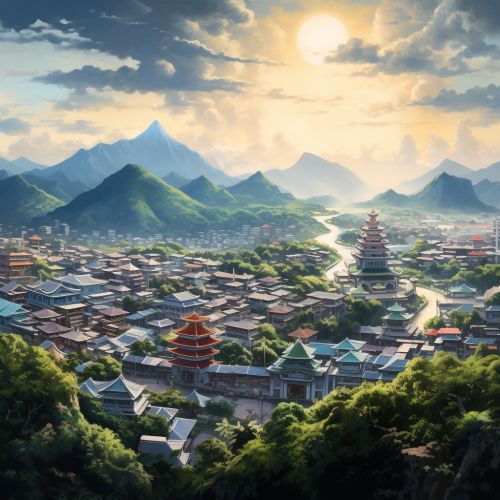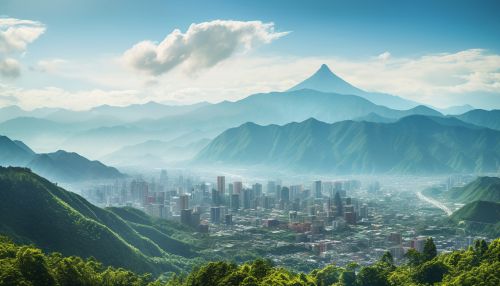Taiwan
Geography
Taiwan is an island located in East Asia, off the southeastern coast of mainland China, southwest of Okinawa in Japan, and north of the Philippines. Taiwan is bordered by the East China Sea to the north, the Philippine Sea to the east, the Luzon Strait directly to the south and the Taiwan Strait on the west.


The island of Taiwan is approximately 394 kilometers (245 miles) long and 144 kilometers (89 miles) wide. With over 23 million inhabitants, Taiwan is the most populous state and largest economy that is not a member of the United Nations.
History
The history of Taiwan dates back tens of thousands of years to the earliest known evidence of human habitation. The sudden appearance of a culture based on agriculture around 3000 BC is believed to reflect the arrival of the ancestors of today's Taiwanese indigenous peoples.
The island was first brought to the attention of Western explorers with the 1542 Portuguese sighting, who named it "Ilha Formosa" or "Beautiful Island". In the early 17th century, the Dutch East India Company established a base in southwestern Taiwan, implementing a system of land rights, which it later expanded to the entire island.
The Qing Dynasty of China later conquered Taiwan in 1683. In 1895, following its defeat in the First Sino-Japanese War, the Qing ceded Taiwan to Japan. Taiwan was returned to Nationalist Chinese control in 1945 following Japan's defeat in World War II.
Politics
Taiwan is a democratic republic with a president as the head of state. The government of Taiwan maintains a separation of powers with the executive, legislative, and judicial branches of government. The Democratic Progressive Party (DPP) is currently the ruling party, with Tsai Ing-wen as the current President of Taiwan.
Economy
Taiwan has a dynamic capitalist economy with gradually decreasing guidance of investment and foreign trade by government authorities. In keeping with this trend, some large government-owned banks and industrial firms are being privatized. Real growth in GDP has averaged about 8% during the past three decades.
Taiwan has a developed capitalist economy that ranks as the 21st-largest in the world by purchasing power parity (PPP), ranks as 18th in the world by GDP at purchasing power parity per capita (person), and 24th in nominal GDP of investment and foreign trade by the World Trade Organization.
Culture
The culture of Taiwan is a blend of Confucianist Han Chinese and Taiwanese aborigines cultures, which are often perceived in both traditional and modern understandings. More recently, Japanese and American cultures have influenced Taiwanese culture as well.


